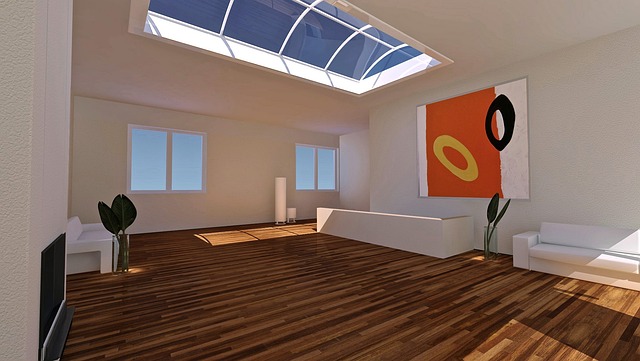Privacy and social interaction are contrasting needs for students in shared living spaces. Balancing these requires thoughtful space planning, including quiet zones, noise reduction, and private study areas. Technology offers solutions like smart locks and privacy-focused networks. By incorporating diverse spaces and open communication, student housing can cater to varied preferences while fostering a positive environment. Achieving harmony between social life and privacy is essential for academic success and overall well-being.
In today’s digital age, achieving privacy balance in student housing is more critical than ever. As students juggle academic demands with a desire for personal space, understanding their unique privacy needs becomes paramount. This article explores strategies for creating harmonious environments that cater to both communal living and individual retreats. We delve into the role of technology, legal considerations, and empowering residents to take control of their privacy while navigating the complexities of sharing spaces, ultimately striking a balance between social life and personal sanctuary.
- Understanding Student Housing Privacy Needs
- Technology's Role in Securing Personal Spaces
- Balancing Social Areas and Private Retreats
- Communal Living: Striking a Balance
- Legal and Ethical Considerations for Students
- Empowering Residents: Taking Control of Privacy
Understanding Student Housing Privacy Needs

Privacy is a fundamental right for all students, especially in shared living spaces like student housing. However, achieving privacy balance in such environments can be challenging due to the inherent social nature of campus life. Students often need a space to retreat and focus on studies or personal time, while also enjoying the camaraderie and social activities that come with living in close quarters.
Understanding these dual needs is crucial when it comes to designing or managing student housing. Balancing social life and privacy requires thoughtful consideration of space allocation, common areas, and individual room features. For instance, providing designated quiet zones within residence halls, implementing noise reduction measures, and offering private study spaces can help cater to students’ varying preferences and requirements for both social interaction and solitary time.
Technology's Role in Securing Personal Spaces

Technology plays a pivotal role in achieving a privacy balance within student housing, especially as students navigate the delicate act of balancing their social lives. Smart locks and access control systems offer a modern solution to personal space security. These innovations allow residents to remotely manage entry to their rooms, ensuring only authorized individuals can gain access. With just a tap on a smartphone app, students can grant or revoke access, providing them with granular control over their private sanctuary.
Additionally, privacy-focused networking tools enable students to create secure wireless networks for their personal devices, further protecting their online activities and data. By combining these technological advancements, student housing providers can foster an environment where residents enjoy the freedom to socialize while maintaining the sanctity of their individual spaces, thus fostering a harmonious balance between social engagement and privacy.
Balancing Social Areas and Private Retreats

In student housing, achieving a privacy balance involves thoughtfully designing spaces that cater to both the need for social interaction and the desire for personal retreat. While bustling social areas are essential for fostering community and camaraderie among residents, they can also be distracting and intrusive on study time or moments of quiet reflection. To mitigate this, incorporating private retreats within the housing complex is crucial. These could take the form of individual study nooks, cozy reading corners, or dedicated silent zones where students can escape the hustle and bustle for some much-needed solitude.
By striking a delicate balance between social areas and private retreats, student housing providers can create an environment that supports both academic success and overall well-being. This approach ensures that residents have ample opportunities to connect with peers while also providing them with tranquil spaces where they can recharge, focus, and maintain their personal boundaries—all vital components of a healthy college experience.
Communal Living: Striking a Balance

Communal living in student housing presents a unique challenge when it comes to balancing social life and privacy. While sharing spaces fosters a sense of community, it also requires conscious effort to maintain personal boundaries. Students must navigate their immediate surroundings, understanding that others’ needs and preferences may differ from their own.
Striking this balance involves open communication and mutual respect. Establishing clear expectations regarding noise levels, common area usage, and personal space can significantly contribute to a harmonious environment. Regular discussions among housemates can help identify potential issues early on, allowing for quick resolutions. Ultimately, finding the right equilibrium ensures everyone enjoys both the benefits of communal living and the tranquility needed for academic success.
Legal and Ethical Considerations for Students

Achieving a privacy balance in student housing presents a unique challenge, especially with the ever-present digital footprint and evolving societal norms. Legally and ethically, students have the right to expect certain levels of privacy, which is protected by various data protection laws worldwide. However, this right often clashes with the vibrant social environment typical of campus life. Universities and residence halls must navigate this delicate balance, ensuring that students can enjoy a robust social experience while also safeguarding their personal information.
The legal framework surrounding student privacy involves data collection, storage, and usage guidelines, particularly when it comes to online platforms and digital resources used for academic purposes. Ethically, fostering an environment that encourages open communication, respect for boundaries, and responsible digital citizenship is paramount. This includes promoting awareness about privacy settings, secure internet practices, and the potential long-term impact of digital interactions on one’s personal life and future career prospects. Balancing social life with these considerations can be a game-changer in creating inclusive and safe student housing communities.
Empowering Residents: Taking Control of Privacy

In student housing, achieving a privacy balance is crucial for fostering a harmonious living environment. One effective strategy to attain this balance is by empowering residents to take control of their privacy settings. Students should be equipped with the knowledge and tools to navigate social interactions while maintaining personal boundaries.
By encouraging open communication and setting clear expectations, residents can create an atmosphere where everyone understands the importance of respecting each other’s privacy. This includes simple measures like knocking before entering, honoring do-not-disturb signs, and being mindful of noise levels during different study and sleep times. Balancing social life and personal space empowers individuals to enjoy their residence while ensuring everyone feels safe and respected.






